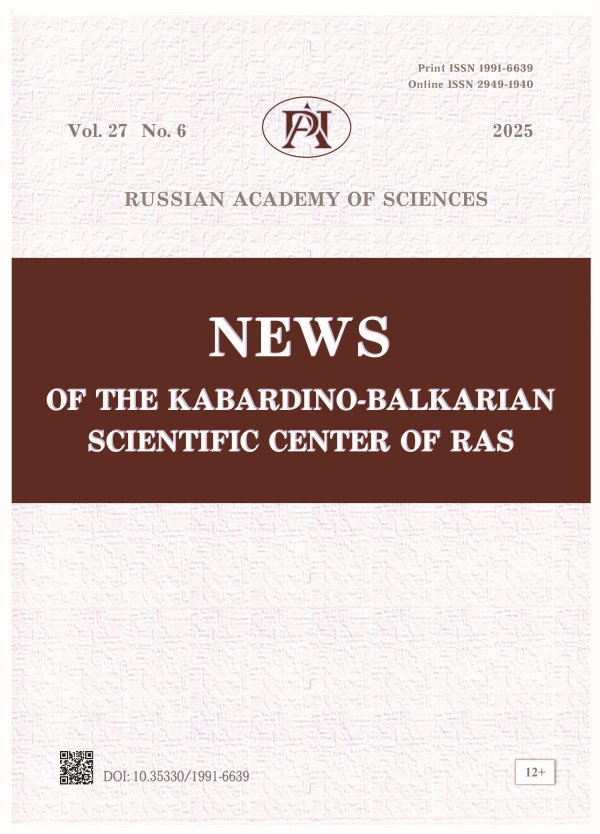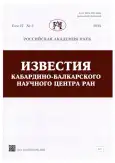Digital cooperation as a quality improvement factor in passenger air transportation services
- Authors: Lavskaya K.K.1, Barykin S.E.1, Bozhuk S.G.1, Makarenko E.A.2,3
-
Affiliations:
- Institute of Industrial Management and Trade, Peter the Great St. Petersburg Polytechnic University
- Institute of Industrial Management and Trade of Peter the Great St. Petersburg Polytechnic University
- Institute of Entrepreneurship Technologies and Law of the St. Petersburg State University of Aerospace Instrumentation
- Issue: Vol 27, No 3 (2025)
- Pages: 154-169
- Section: Regional and sectoral economics
- Submitted: 25.08.2025
- Published: 21.10.2025
- URL: https://journal-vniispk.ru/1991-6639/article/view/306154
- DOI: https://doi.org/10.35330/1991-6639-2025-27-3-154-169
- EDN: https://elibrary.ru/VDPGME
- ID: 306154
Cite item
Full Text
Abstract
The article focuses on digital cooperation in the field of passenger air transport. The main idea is to bring together all the participants in the passenger air transport process and related services on a single digital platform, with the aim of improving passenger service quality and increasing the competitiveness of air transport. The study targets to develop interaction schemes between participants in digital cooperation within the passenger air transport market. The authors present the results of a content analysis reflecting the current state of, and trends in, the air transport market, using the activities and number of aviation and non-aviation partners of Russian airlines such as Russia, KrasAvia, RusLine and the 2nd Arkhangelsk United Air Squadron as an example. A significant number of airline partners were identified, confirming the relevance of digital cooperation in improving interaction quality between market participants and air passengers. In regions where air travel plays a key role in citizens' mobility, implementing digital cooperation makes travel planning and execution more convenient and raises awareness of related services. This contributes to the entrepreneurial and infrastructural development of regions in the Russian Federation. The authors propose discussing the potential impact of digital cooperation on improving quality of life, using regions where air transport is key to citizens' mobility as an example.
About the authors
K. K. Lavskaya
Institute of Industrial Management and Trade, Peter the Great St. Petersburg Polytechnic University
Email: kristinalavskay@yandex.ru
ORCID iD: 0000-0001-6372-4282
SPIN-code: 3484-8977
Candidate for the degree of Candidate of Economic Sciences
Russian Federation, Novorossiyskaya street, 50, St. Petersburg, Russia, 195251S. E. Barykin
Institute of Industrial Management and Trade, Peter the Great St. Petersburg Polytechnic University
Email: sbe@list.ru
ORCID iD: 0000-0002-9048-009X
SPIN-code: 9382-2074
Doctor of Economics, Professor
Russian Federation, Novorossiyskaya street, 50, St. Petersburg, Russia, 195251S. G. Bozhuk
Institute of Industrial Management and Trade, Peter the Great St. Petersburg Polytechnic University
Email: bojuk_svetlana@yandex.ru
ORCID iD: 0000-0002-8179-5882
SPIN-code: 3021-5480
Doctor of Economics, Professor
Russian Federation, Novorossiyskaya street, 50, St. Petersburg, Russia, 195251E. A. Makarenko
Institute of Industrial Management and Trade of Peter the Great St. Petersburg Polytechnic University; Institute of Entrepreneurship Technologies and Law of the St. Petersburg State University of Aerospace Instrumentation
Author for correspondence.
Email: ss300@yandex.ru
ORCID iD: 0000-0003-3461-3166
SPIN-code: 8363-8144
Candidate of Economic Sciences, Associate Professor
Russian Federation, Novorossiyskaya street, 50, St. Petersburg, Russia, 195251; Bolshaya Morskaya street, 67, St. Petersburg, Russia, 190000References
- Bai C., Quayson M., Sarkis J. COVID-19 pandemic digitization lessons for sustainable development of micro-and small-enterprises. Sustain. Prod. Consum. 2021. Vol. 27. Pp. 1989–2001. doi: 10.1016/j.spc.2021.04.035
- Donida B., da Costa C.A., Scherer J.N. Making the COVID-19 pandemic a driver for digital health: brazilian strategies. JMIR Public Health Surveill. 2021. Vol. 7. No. 6. P. e28643. doi: 10.2196/28643
- Erokhin D.F., Zaitseva I.V. Innovative solutions for airlines in the context of an epidemiological crisis. Strategicheskoye razvitiye innovatsionnogo potentsiala otrasley, kompleksov i organizatsiy [Strategic development of the innovative potential of industries, complexes and organizations]: Sbornik statey IX Mezhdunarodnoy nauchno-prakticheskoy konferentsii, Penza, 22–23 oktyabrya 2021 g. Penza: Penzenskiy gosudarstvennyy agrarnyy universitet, 2021. Pp. 32–35. EDN: DCKKWZ. (In Russian)
- Booyse W., Wilke D.N., Heyns S. Deep digital twins for detection, diagnostics and prognostics. Mechanical Systems and Signal Processing. 2020. Vol. 140. P. 106612. doi: 10.1016/j.ymssp.2019.106612
- Marmolejo-Saucedo J.A. Design and development of digital twins: a case study in supply chains. Mobile Networks and Applications. 2020. Vol. 25. No. 6. Pp. 2141–2160. doi: 10.1007/s11036-020-01557-9
- Lu Y., Liu C., Wang K. I.-K. et al. Digital twin-driven smart manufacturing: connotation, reference model, applications and research issues. Robotics and Computer-Integrated Manufacturing. 2020. Vol. 61. P. 101837. doi: 10.1016/j.rcim.2019.101837
- Sacks R., Brilakis I., Pikas E. et al. Construction with digital twin information systems. Data-Centric Engineering. 2020. Vol. 1. P. e14. doi: 10.1017/dce.2020.16
- Hossain T.M.T., Akter S., Kattiyapornpong U., Dwivedi Y. Reconceptualizing integration quality dynamics for omnichannel marketing. Industrial Marketing Management. 2020. Vol. 87. No. 4. Pp. 225–241. doi: 10.1016/j.indmarman.2019.12.006
- Cui T.H., Ghose A., Halaburda H. et al. Informational challenges in omnichannel marketing: remedies and future research. Journal of Marketing. 2021. Vol. 85. No. 2. P. 002224292096881. doi: 10.1177/0022242920968810
- Lee W.-J. Unravelling consumer responses to omni-channel approach. Journal of theoretical and applied electronic commerce research. 2020. Vol. 15. No. 3. Pp. 37–49. doi: 10.4067/S0718-18762020000300104
- Gao W., Fan H. Omni-channel customer experience (in) consistency and service success: a study based on polynomial regression analysis. Journal of Theoretical and Applied Electronic Commerce Research. 2021. Vol. 16. No. 6. Pp. 1997–2013. doi: 10.3390/jtaer16060112
- Hajdas M., Radomska J., Silva S.C. The omni-channel approach: a utopia for companies? Journal of Retailing and Consumer Services. 2020. Vol. 65. P. 102131. doi: 10.1016/j.jretconser.2020.102131
- Saghiri S., Wilding R., Mena C., Bourlakis M. Toward a three dimensional framework for omni-channel. Journal of Business Research. 2017. Vol. 77. No. 2. Pp. 53–67. doi: 10.1016/j.jbusres.2017.03.025
- Verhoef P.C., Kannan P.K., Inman J.J. From multi-channel retailing to omni-channel retailing: introduction to the special issue on multi-channel retailing. Journal of Retailing. 2015. Vol. 91. No. 2. Pp. 174–181. doi: 10.1016/j.jretai.2015.02.005
- Lavskaya K.K., Barykin S.E., Kapustina I.V., Karmanova A.E. The role of digital platforms in improving the quality of life: prospects for the introduction of digital cooperation. Global'nyye vyzovy tsifrovoy transformatsii rynkov [Global challenges of digital transformation of markets]. St. Petersburg: Polytech Press, 2023. Pp. 192–208. EDN: GHMRYK. (In Russian)
- Lavskaya K.K. Digital cooperation in passenger air transportation. Issledovaniya i innovatsii v nauke 2024 [Research and Innovation in Science]: Sbornik materialov III mezhdunarodnoy ochno-zaochnoy nauchno-prakticheskoy konferentsii, Moskva, 12 marta 2024 goda. Moscow: Nauchnyy tsentr «Izdaniye», 2024. Pp. 41–45. EDN: GKKQAC. (In Russian)
- An J., Mikhaylov A., Jung S.-U. A linear programming approach for robust network revenue management in the airline industry. Journal of Air Transport Management. 2021. Vol. 91. No. 4. P. 101979. doi: 10.1016/j.jairtraman.2020.101979
- Zaitseva I.V., Pankratova A.R. Development of the passenger air transportation market between the Northwestern and Far Eastern Federal districts. Sovremennyy uchenyy [A modern scientist]. 2017. No. 5. Pp. 185–189. EDN: ZSJMFP. (In Russian)
- Zaitseva I.V., Borodulina S.A. Research of the aviation system of the Arctic zone of the Russian Federation. Transportnoye delo Rossii [Transport business of Russia]. 2022. No. 1. Pp. 159–161. doi: 10.52375/20728689_2022_1_159. EDN: HOJJXE. (In Russian)
- Ablyazov T., Asaul V. Development of the Arctic transport infrastructure in the digital economy. Transportation Research Procedia. 2021. Vol. 57. No. 1. Pp. 1–8. doi: 10.1016/j.trpro.2021.09.018
- Pugachev I., Kulikov Yu., Markelov G., Ostapenko A. Peculiarities of strategic transport development in the Russian Far East and the Arctic. Transportation Research Procedia. 2021. Vol. 57. No. 1. Pp. 511–517. doi: 10.1016/j.trpro.2021.09.079
- Tabunkov E.V., Slivinsky D.V. Approaches to determining the effectiveness of commercial activities of airport enterprises. Ekonomika i biznes: teoriya i praktika [Economics and business: theory and practice]. 2022. No. 4-2. Pp. 158–163. doi: 10.24412/2411-0450-2022-4-2-158-163. (In Russian)
Supplementary files








